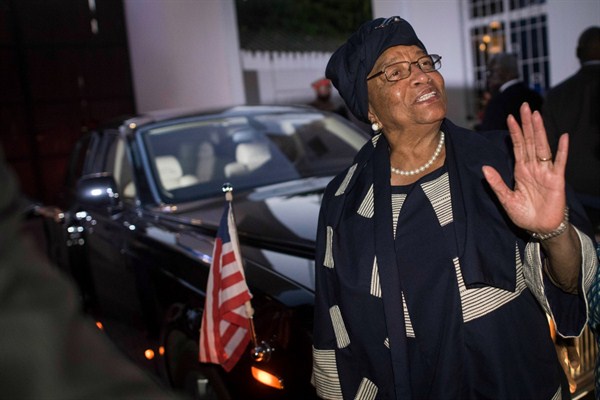Liberian President Ellen Johnson Sirleaf was born into a native Liberian family, meaning her parents were not descendants of the freed American slaves who established the country in the mid-19th century. As a girl, her mother was sent to work in the home of one of these Americo-Liberian families, who are also known as Congo people.
Yet in “Madame President,” a biography released earlier this year, the New York Times reporter Helene Cooper notes that throughout her life, Sirleaf has run in the circles of the Congo elite while often being mistaken for one herself. After studying in the U.S., she served as a Cabinet minister in the last Congo-dominated government that ruled before a coup in 1980 ushered in more than two decades of instability and conflict. And like many elites, she spent most of the war years outside the country.
Since winning the presidency in 2005, the public association of Sirleaf with Liberia’s elite class has only increased as she appointed diaspora Liberians to top positions, worked foreign contacts to secure debt relief, and garnered international praise and accolades, including the Nobel Peace Prize in 2011. Though she has emphasized her native roots while campaigning, she has also spent much of her time in office trying to counter the narrative that she is more popular abroad than at home.

